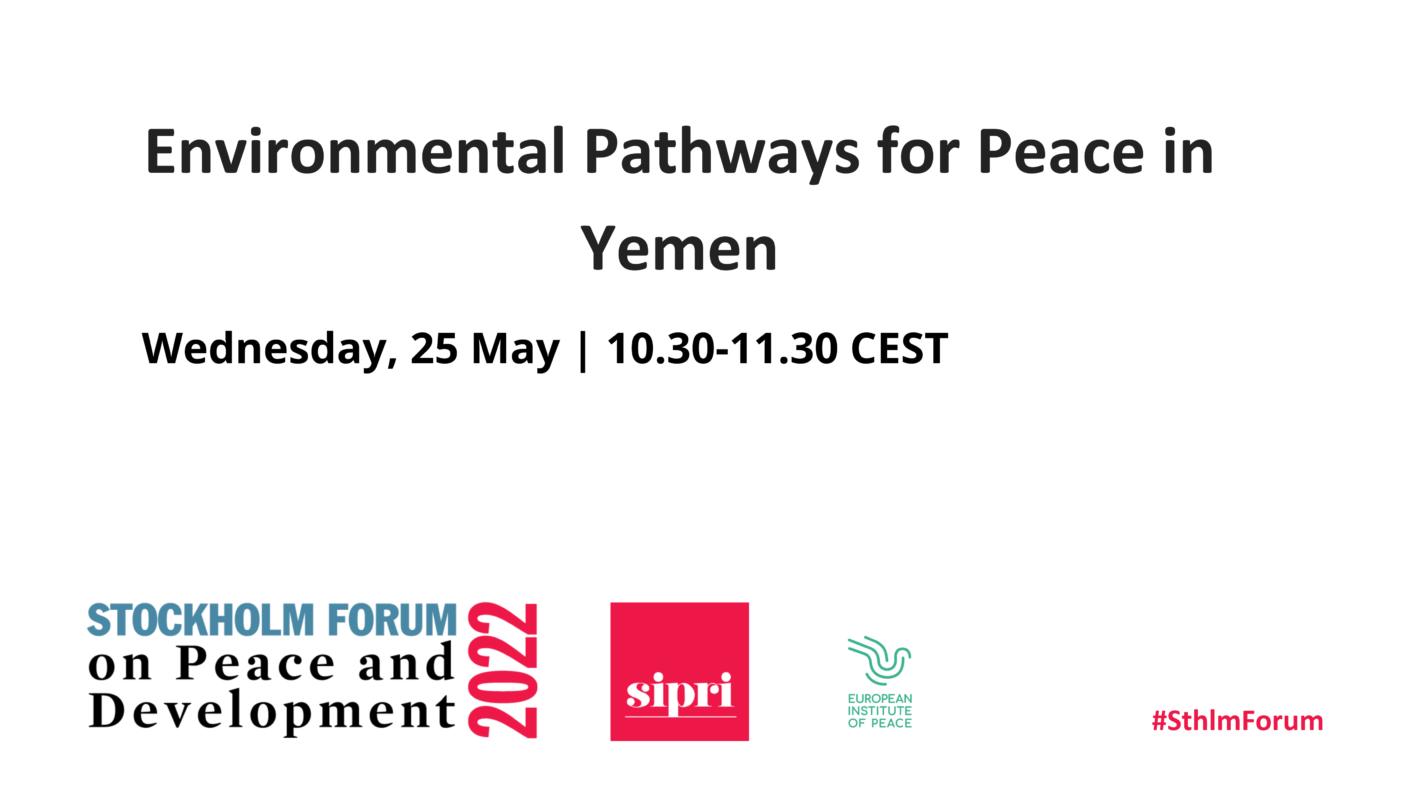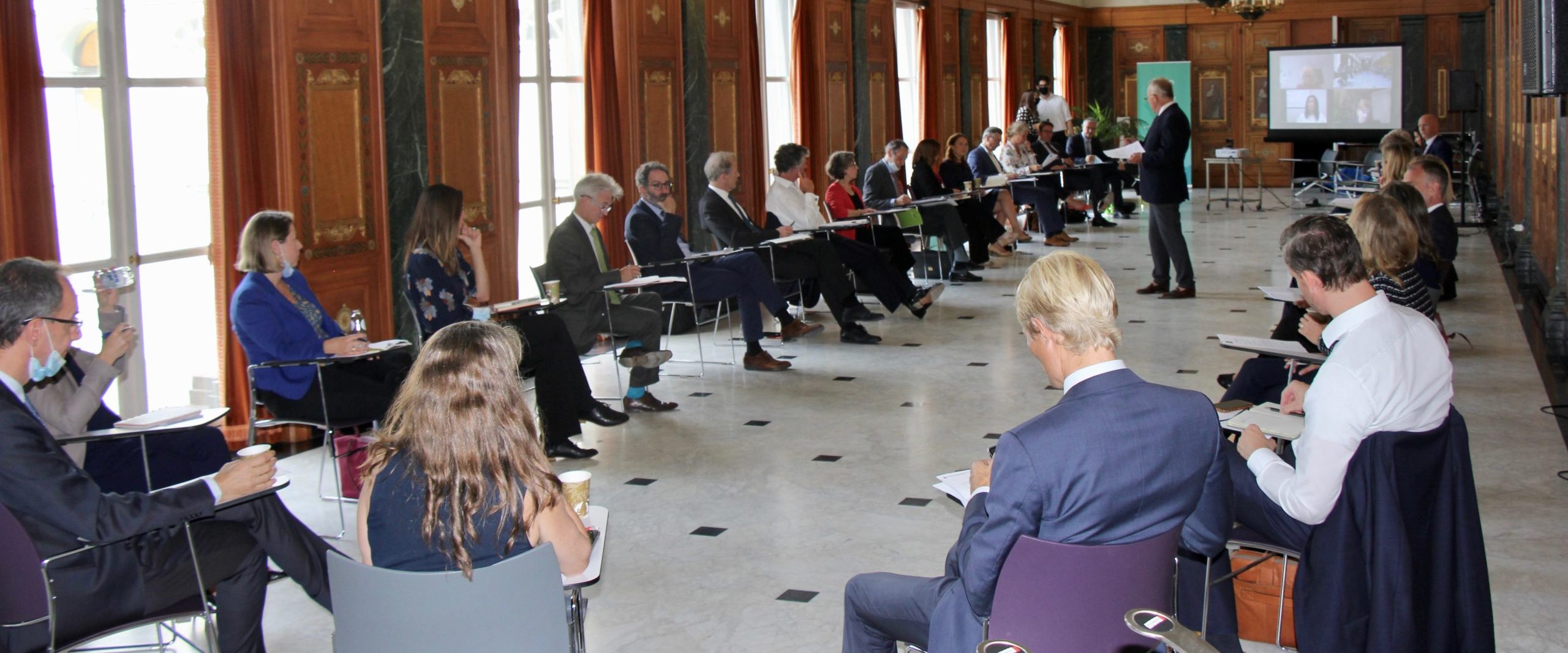Environmental pathways for reconciliation in Yemen

Where: 2022 Stockholm Forum on Peace and Development and online (register online)
When: Wednesday 25 May at 10.30-11.30 CEST
This session explores the conflict in Yemen with a particular focus on its environmental dimensions. It puts emphasis on why it is important and indeed possible to consult in more depth about the needs, rights and perspectives of Yemenis to chart paths towards peace and reconciliation. The session is for those who seek a deeper understanding of the environmental aspects of Yemen’s conflict and ways to engage with the population more widely.
In this post, also featuring on SIPRI, the Institute’s Environmental Peacemaking team Amy Dallas and Julie Raasteen explore how addressing environmental challenges in Yemen can create pathways for peace.
The Panelists:
Julie Raasteen is the Programme Officer for Environmental Peacemaking at the European Institute of Peace, a programme designed to upgrade conflict resolution to integrate issues and opportunities associated with the changing climate, environmental degradation, and the low-carbon transition to resilient societies. She has headed up the Programme since early 2020.
Elodie Vanneste joined the European Institute of Peace in 2018. She is the Programme Officer for Conflict Justice and Reconciliation; this programme seeks to enhance the prospect that peace settlements last: it identifies the key rights-based issues for immediate attention in conflict contexts and constructs ways for peacemaking efforts to address them.
Muna Luqman is currently working in security sector reform with the Geneva Centre for Security Sector Governance (DCAF). She is the Founder and Chairperson of Food4humanity and co-founder of the Women’s Solidarity Network, the largest women’s network in Yemen and Member of WASL Alliance for Security Leadership. She frequently briefs the UN Security Council, members of Congress, UN Human Rights Council, and has advocated around the world to stop the war and for humanitarian action, calling for women’s participation in the peace process in Yemen. She has previously served INGOs including Save the Children, ADRA-Canada, Handicap International, and within the private sector with HSA Group.
Safiya Al-Jabry is the Executive Director of the Small and Micro Enterprise Promotion Service (SMEPS), a subsidiary of the Social Fund for Development in Yemen. She is also a selected member of the Young Global Leaders under the World Economic Forum. Safiya is experienced in private sector development, rural development, and humanitarian work, specifically in conflict and fragile settings. Prior to her current position, she was the Deputy Executive Director in a leading national NGO in Yemen responding to the humanitarian crisis. Before this, Safiya worked as a Programme Officer with the Enhanced Integrated Framework in the Ministry of Industry and Trade (MoIT) in Yemen. She was also part of the technical teams in the MoIT in charge of Yemen’s accession to the World Trade Organization. Safiya holds a Master of Science degree in Finance from the University of Southampton in the United Kingdom.
Anwar Noaman holds a master’s degree in environmental engineering. He has more than 25 years of experience working on environmental issues at the Environmental Protection Agency, with a particular focus on climate change. He is currently UNDP’s country contact for Yemen in the National Communications Support Programme (NCSP) in climate change adaptation.
The Environmental Pathways for Reconciliation project is part of the Weathering Risk Peace Pillar, a project led by adelphi and funded by the German Federal Foreign Office (GFFO). The Weathering Risk Peace Pillar aims to design, pilot, and evaluate climate-informed peace programmes across a range of different geographic contexts and conflict types.

